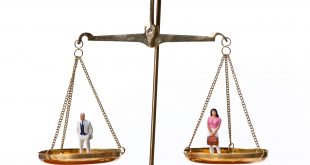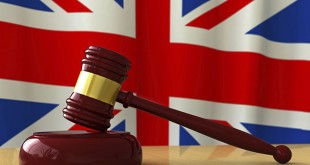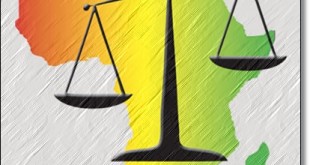Imagine, for a moment, that you and your same-sex partner have been together for several years. You now want to live together for the long-term. What legal options are open to you in France and England? This article will explore some of the issues concerning the rights of same-sex couples under French and English law, and try to answer the question: which country offers them a better deal?
The starting-point in any comparison of French and English law is the fact that neither country allows ‘gay marriage’. The name and the institution of marriage are not available to same-sex couples, in contrast to several other jurisdictions such as Spain, Belgium, some North American states and even South Africa. Nevertheless, both of our countries provide an alternative to marriage. England has had civil partnerships since 2004, while France introduced the Pacte Civile de Solidarité (PACS) in 1999.
What are the key features of these concepts? Civil partnership confers legal rights and duties that are almost identical to those of marriage in England. It is marriage in all but name. In fact, the Civil Partnership Act 2004 went further and gave same-sex co-habitants the same rights as their opposite-sex counterparts. Compare this to the PACS, which was conceived as a very different type of legal institution. More of a special contract than a family union, it provides some of the benefits of French marriage (mostly in the areas of property and tax), but lacks many others, especially relating to children.
The practical consequences for same-sex couples in each country are stark. Civil partners and spouses in England now have the same rights over each other’s property on death or divorce. Indeed, England saw its first celebrity ‘gay divorce’ last year, when comedian Matt Lucas separated from his partner. On the other hand, PACS couples cannot choose from the same régimes des biens that are available to French married couples. Since January 2007, they have had the choice of séparation des biens or régime de l’indivision, but this is still inferior to marriage.
The differences concerning children are much greater. England first allowed gay adoption in 2002, and granted equal access to medically assisted reproduction and surrogate pregnancy in 2008. Two men or women can therefore become the legal parents of a child through these processes, even if neither is its biological parent. Recent case law from the Court of Appeal and House of Lords has consistently said that, in disputes over custody and contact with children, the sexual orientation of a parent should not be relevant. In France, however, the Conseil d’Etat ruled in January 2007 that a lesbian couple could not adopt the child of one of the women – a decision which the European Court of Human Rights found to be a violation of articles 8 and 14 of the Convention. Similarly, assisted reproduction is limited to same-sex co-habitants and spouses.

There is a simple explanation for these differences: civil partnership and the PACS were designed to do different things. The Labour government in 2002, 2004 and 2008 intended to give full legal equality to same-sex couples, but stopped short of simply opening up marriage to them. Why it did so is a controversial question, but the civil partnership option was certainly more acceptable to conservative sections of Parliament, the media and the public than a bold declaration that “Gays can marry each other”. The French government of 1999, in contrast, aimed to help co-habiting couples – of either sexual orientation – who wanted an intermediate position between the rather minimal rights of concubinage and the full union that is marriage.
A same-sex couple who wish to enjoy more equal treatment under the law should choose England. However, the picture is not quite so simple. Firstly, it is not true to say that English law makes no distinction between homosexual and heterosexual couples. The Civil Partnership Act reflects an attitude that treats same-sex couples as ‘equal but different’. Civil partnerships cannot be consecrated in churches, due to the resistance of the Church of England. Furthermore, the terminology is different. One cannot ‘marry’ or ‘divorce’ one’s ‘spouse’; one must instead ‘form’ or ‘dissolve’ a ‘civil partnership’ with one’s ‘civil partner’. English has no equivalent of the verb se pacser! Although two men or women can be the legal parents of a child, they are called the ‘legal father/mother’ and ‘other legal parent’. There is still a lingering unease with the idea of equating couples of the same and opposite sex.
Secondly, the French system offers some advantages to any type of couple. The PACS represents a halfway point between the legal rights of co-habitation and marriage, and has no equivalent in England. The huge differences between the legal consequences of these two situations – especially for property rights – have generated much complex, confusing and sometimes unfair case law. Students of English property and family law still fear the name of the case Stack v Dowden (2007)! The PACS is a very useful example of how these problems can be overcome.
What is the future for same-sex couples in our two countries? At the moment there appears to be little political agitation in England for allowing gay marriage. Perhaps most gay couples are content to enjoy the substance of the legal rights of marriage, without its name and outward form. Certainly, following the case of Wilkinson v Kitzinger (2006), English judges will not recognise same-sex marriages that are formed in countries where it is legal. In France, where the differences in treatment are greater, the issue seems to be more of a hot topic. The recent debates concerning homoparentalité are a good example. However, they also seem to show that France is moving slowly towards greater equality. Of course, there are political and cultural differences that could make the eventual outcome appear very unlike the situation in England. It is to be hoped that, in the future, our imaginary same-sex couple (and their numerous equivalents in real life) will not want to choose England over France because of legal inequality. Given the weather and food, the decision should be, as we say in England, a no-brainer.
Stefan Liberadzki
 Le petit juriste Site de la revue d'actualité juridique
Le petit juriste Site de la revue d'actualité juridique





